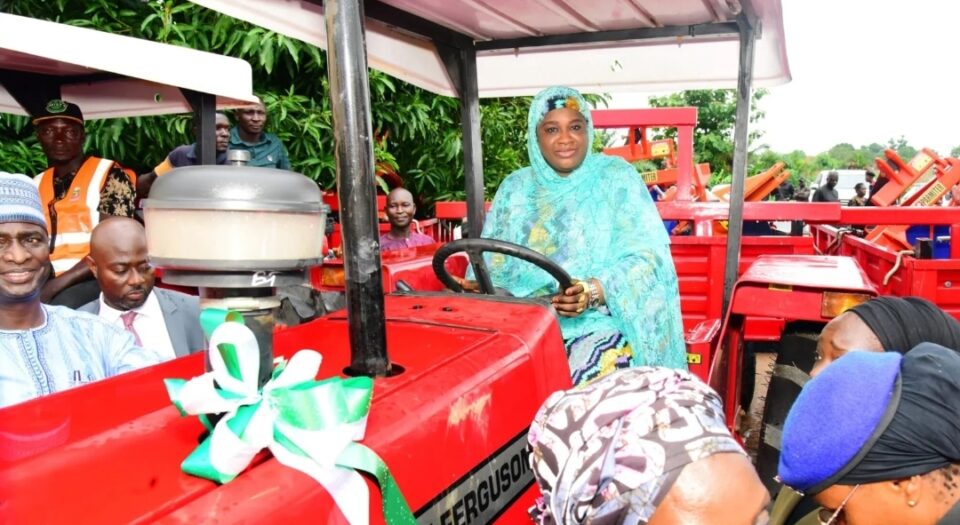By Daniel Tyokua
The Federal Capital Territory Administration (FCTA) has distributed ten tractors and one hundred and forty power tillers to farmers in the territory.
The administration pledged its commitment to providing all that is required through the relevant Secretariat, Departments and Agencies of the FCT Administration, to boost food production and national food security.
Minister of state for the FCT, Dr Mariya Mahmoud, gave this commitment during the commissioning of projects, agricultural machineries and distribution of agricultural inputs to Community Interest Groups (CIGs) under the Agro-Climatic Resilience in Semi-Arid Landscapes (ACReSAL) Project.
She noted that the (ACReSAL) project is a World Bank supported programme which sought to enhance community resilience against climate change and enhance the livelihoods of communities in the 19 Northern states of Nigeria and the Federal Capital Territory.
Mahmoud also noted that the FCT has grappled with the devastating consequences of large-scale land degradation for 48 years, resulting from rapid infrastructural development leading to substantial loss of its precious tree covers.
However, she said “the coming on stream of the ACReSAL with its bold and ambitious land restoration initiatives targeting the reclamation of over 10,000 hectares of degraded land in the Territory is a welcome development.
“I would like to assure you that this endeavour has the full backing of the FCT Administration. We are committed to providing all that is required through the relevant Secretariats, Departments and Agencies of the FCT Administration to ensure the success of this worthy initiative”.
Mahmoud added that, “Ultimately, our goal is to secure a brighter future for our citizens, where their livelihoods and wellbeing are protected and enhanced, and we believe that ACReSAL is a critical step towards achieving this vision”.
The minister further noted that the agricultural sector, which was the mainstay of the nation’s economy, has been the most severely affected by climate change’s devastating impacts.
According to her; “This alarming situation not only impact negatively on national food security, but also jeopardizes the livelihoods of millions of people, exacerbating poverty and vulnerability.
“It is against this backdrop that the FCT Administration since joining ACReSAL in 2022, has demonstrated total commitment to the project as evidenced in its active engagement and participation in all ACReSAL programmes towards harnessing the resources that we are blessed with for the betterment and wellbeing of Abuja residents”.
Mahmoud said that the event was a strategic response to one of the most pressing challenges faced by farmers, which was mainly the lack of access to critical agricultural inputs and limited knowledge of sustainable landscape management practices.
“It is our hope that this support will build farmers resilience (ACReSAL) their capacities to contribute meaningfully to food security and sustainable development in the FCT,” she stressed.
In his address, the Mandate Secretary Agriculture and Rural Development Secretariat, Hon. Lawan Kolo Geidam, stated that over the past two years the ACReSAL project, has made concerted efforts to put all the required structures in place to ensure the smooth implementation of the project in the FCT.
Geidam used the occasion to reveal that apart from commissioning some of these projects and modern agricultural machineries which consists of 10 tractors and 140 power tillers, the Administrative would be distributing very critical agricultural inputs such as fertilizers, improved seedlings, and agro-chemicals to farmers.
“Also earmarked for distribution today, are 3 utility vehicles to be handed over to various institutions as part of ACReSAL’s institutional strengthening initiative aimed at enhancing their capacities to serve our communities better in activities that align with the project development objectives of ACReSA,” he affirmed.
The highpoint of the event was the commissioning of the Women Casava Processing Centre, one of the eight solar-powered boreholes that have been constructed in eight communities to provide much-needed access to portable water for daily living and agricultural activities.



